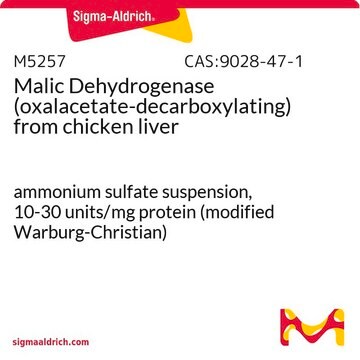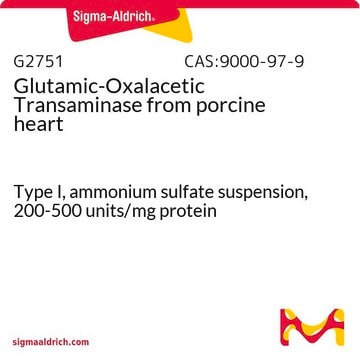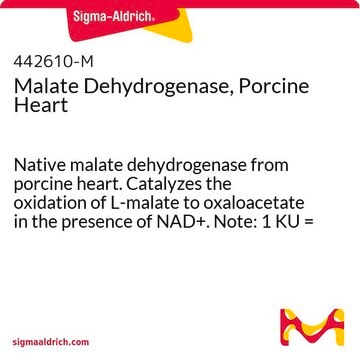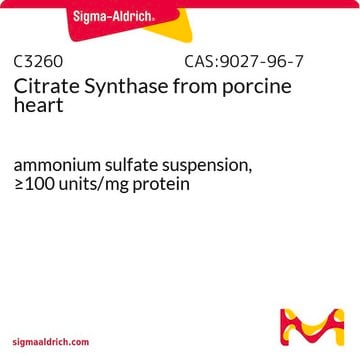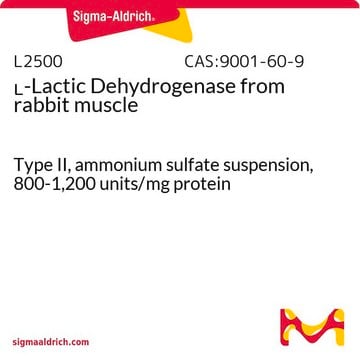M9004
Malic Dehydrogenase from bovine heart
ammonium sulfate suspension, 2000-4000 units/mg protein (modified Warburg-Christian)
Synonym(s):
L-Malate:NAD+ oxidoreductase, MDH
About This Item
Recommended Products
biological source
bovine heart
form
ammonium sulfate suspension
specific activity
2000-4000 units/mg protein (modified Warburg-Christian)
mol wt
35 kDa
impurities
≤0.01% Glutamic-Oxalacetic Transaminase
≤0.01% Glutamic-Pyruvic Transaminase
storage temp.
2-8°C
Looking for similar products? Visit Product Comparison Guide
General description
Application
Unit Definition
Physical form
Storage Class Code
11 - Combustible Solids
WGK
WGK 3
Flash Point(F)
Not applicable
Flash Point(C)
Not applicable
Personal Protective Equipment
Certificates of Analysis (COA)
Search for Certificates of Analysis (COA) by entering the products Lot/Batch Number. Lot and Batch Numbers can be found on a product’s label following the words ‘Lot’ or ‘Batch’.
Already Own This Product?
Find documentation for the products that you have recently purchased in the Document Library.
Customers Also Viewed
Articles
Instructions for working with enzymes supplied as ammonium sulfate suspensions
Protocols
Spectrophotometric assay evaluates malic dehydrogenase activity using bovine heart enzyme with critical histidine residue at active site.
Spectrophotometric assay evaluates malic dehydrogenase activity using bovine heart enzyme with critical histidine residue at active site.
Spectrophotometric assay evaluates malic dehydrogenase activity using bovine heart enzyme with critical histidine residue at active site.
Spectrophotometric assay evaluates malic dehydrogenase activity using bovine heart enzyme with critical histidine residue at active site.
Our team of scientists has experience in all areas of research including Life Science, Material Science, Chemical Synthesis, Chromatography, Analytical and many others.
Contact Technical Service

